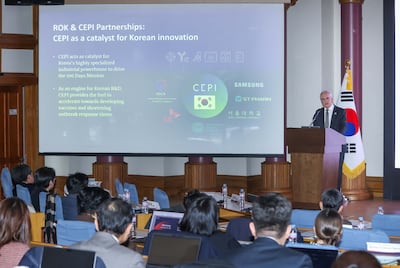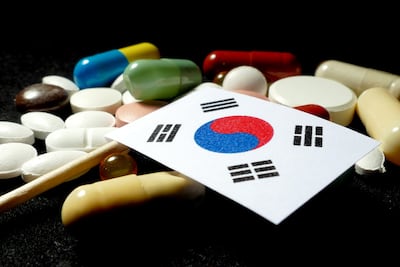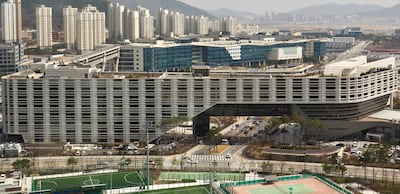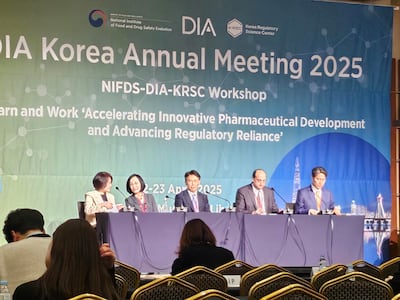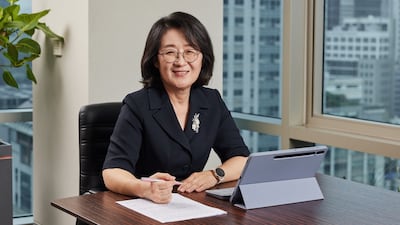South Korea
At a recent discussion in South Korea, CEPI and other participants explored ways to discover new health cooperation models that go beyond traditional aid approaches and to strengthen Korea’s role.
President Trump says something will be "worked out" with South Korea following his declaration that tariffs on the country would be increased to 25%, due to what he views as delays in implementing a bilateral trade deal.
A look back at South Korea's key biopharma policy and regulatory developments last year and the outlook for 2026, when AI tools look set to play a role in reducing product approval periods.
A review of South Korea's GIFT fast track initiative for high-need drugs reveals that foreign firms have been the main beneficiaries over the first three years.
South Korea has laid out comprehensive drug pricing reforms that aim to enhance patient access to treatment, accelerate innovation and stabilize essential drug supplies, but the industry is concerned it could lead to weaker R&D and manufacturing and increased dependency on high-priced imports.
Multiple Korean ministries, biopharma companies, and other officials convened at a bio innovation roundtable to discuss strategies to emerge as a global biopharma powerhouse.
Experts discussed challenges and requirements around adoption of AI and big data tools in South Korea's biopharma sector at a recent forum in Seoul, amid a broader push towards an AI-powered economy by the country's new government.
In line with new President Lee’s campaign pledges, South Korea's newly confirmed health minister is expected to tackle key issues including a prolonged doctors' conflict, essential drug supplies and R&D support for the industry.
A system of pre-regulatory review consultations for innovative drugs and devices in South Korea has contributed to the accelerated development of such products.
A differentiated profit-sharing model to accelerate the use of AI in drug development using clinical and patient data is being proposed in South Korea, but the idea faces multiple practical challenges
As South Korea's new president immediately gets to work on setting initial policies, essential drug supplies, R&D incentives and AI-driven digital healthcare are among the key topics in focus.
As South Korea gears up for a snap presidential election, its biopharma industry proposes key desired policies to candidates, most of whom have not laid out detailed plans of their own for the sector.
DIA Korea hears how multiple domestic and global factors are affecting the environment for clinical trials in South Korea, and what actions may be taken to address this.
Analysts expect a limited impact on South Korean pharma from US tariffs, even if imposed at a later date. Meanwhile, the early June domestic presidential election is set to determine the direction of policies in the sector.
South Korea announces planned revisions to a government scheme to designate "innovative" biopharma companies amid allegations of "discrimination" against foreign firms.
In an ongoing effort to accelerate the commercialization of select innovative drugs and medical devices, Korea’s MFDS is launching a new program for certain products that will receive regular regulatory consultations until they reach the approval stage.
The Pink Sheet looks at what major policies and regulations South Korean authorities prioritized in 2024 and what may be in store for this year.
Speedier approval of clinical trials, flexibility towards new technologies, faster access to new drugs and lingering regulatory barriers to decentralized trials are among the challenges South Korea is facing in becoming a global trial hot spot.
A short-lived but shocking attempt to declare martial law by South Korea's president has thrown the country into political turmoil which could disrupt foreign biopharma investment and key policy initiatives.
The head of the Korea Regulatory Science Center talks exclusively to the Pink Sheet about why regulatory science is crucial, the country's efforts to improve in the area and the center's strategic bridging role.

